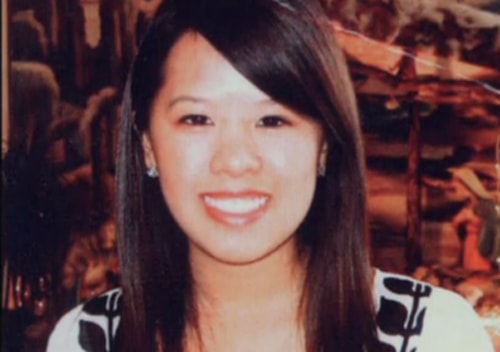Vietnamese nurse still infected with Ebola despite wearing protective gear
Nina Pham wore a mask, gloves, gown and face shield while caring for an Ebola patient. She tested positive for the virus, and officials have no idea how it happened.
 |
| Nurse Nina Pham. Photo: Facebook |
"Something went wrong and we need to find out what and why," said Dr. Anthony Fauci, director of the US National Institute of Allergy and Infectious Diseases.
Nina, 26, followed basic precautions as part of a team of 50 doctors and nurses treating Liberian Thomas Eric Duncan at a hospital in Dallas, Texas. Duncan died last week, and just a day later, the Centers for Disease Control and Prevention (CDC) said Nina tested positive for Ebola, becoming the first person to be infected with the deadly virus on U.S. soil.
According to CNN, Nina graduated from Texas Christian University's nursing program in 2010. She only received her intensive care nurse certification on August 1, less than two months before she joined Duncan's treatment.
Yesterday, Nina received a blood transfusion from Ebola survivor Kent Brantly. Brantly contracted the virus while working in Liberia.
CDC director Dr. Tom Frieden said it was unclear how Nina contracted Ebola and that a "protocol error" in patient care may have occurred.
Federal officials are re-examining those protocols, including removing protective equipment after coming into contact with Ebola patients, and whether spraying health care workers with antiviral drugs as they leave isolation rooms is effective.
How did the virus spread?
CDC officials interviewed Nina several times and said there were “inconsistencies” in the personal protective equipment she used and the process by which she put it on and took it off.
It’s possible that when Nina took off her protective gear, some of the virus-containing fluid from the patient could have somehow come into contact with her, Frieden said. Or it could have happened while Duncan was undergoing kidney dialysis and was intubated.
"You have to remove gloves, masks or other things that are contaminated without letting those tools come into contact with your hands, then your clothes, your face or your skin, and that's not easy to do," said Mr. Frieden.
Even taking extra precautions beyond what the CDC recommends can increase the risk of infection. Nurses are allowed to double-glove in some situations, but triple-glove wearing is against CDC guidelines because it adds steps and takes longer than necessary to remove protective equipment.
The CDC acknowledged that Nina's case is very concerning. "It's possible that we will see more Ebola cases in the coming days," Frieden said.
Other nurses who cared for Duncan are also being monitored because they may have, like Nina, developed a fever. They will be checked twice a day for symptoms.
Public areas around Nina's apartment building have also been disinfected and her neighbors have been informed. However, officials say the public should not be overly concerned about the outbreak.
Tom Ha, a family friend, described Nina as someone who always “put others before herself.” “That was a philosophy she shared with her family,” he said. “They were always helping people and taking pride in helping others.”
According to VnExpress






